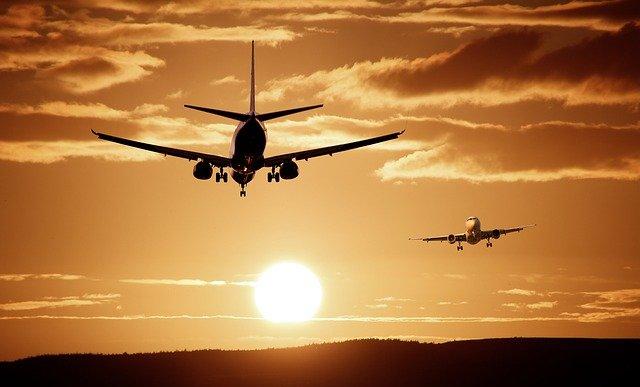The White House said on Monday (September 20) that the United States will reopen air passengers from 33 countries (including China, India, Brazil and most of Europe) in November, as long as they have been fully vaccinated against the new crown.

(Image from pixabay)
The decision announced by The White House coronavirus response coordinator Jeff Zients marks a sudden shift in the Biden administration, which said last week that now is not the right time to lift any restrictions amid the rising number of COVID-19 cases, Reuters reported.
The United States lags behind many other countries in removing such restrictions, which are welcomed by allies and others. Previous U.S. restrictions banned travelers from much of the world, including tens of thousands of foreigners with relatives or business ties in the United States.
The United States will allow fully vaccinated air passengers from 26 so-called Schengen countries in Europe, including France, Germany, Italy, Spain, Switzerland and Greece, as well as the United Kingdom, Ireland, China, India, South Africa, Iran and Brazil. Previous restrictions barred non-U.S. citizens who had entered these countries in the past 14 days.
Former President Donald Trump first imposed non-citizen restrictions on air travelers from China in January 2020 and then extended them to dozens of other countries, but there are no clear indicators on how and when to lift those restrictions.
Aside from saying "early November," the White House has not given an exact start date for the new rules, and many of the details of the new policy are still being decided.
Separately, the United States announced on Monday that land border restrictions with Canada and Mexico will be extended until October 21, prohibiting non-essential travel such as sightseeing. The White House has not said whether it will apply the new vaccine rules to these land crossings.
Throughout the pandemic, the United States has allowed foreign air travelers from more than 150 countries to enter the country. Critics therefore argue that the travel ban is meaningless because some countries with high COVID-19 incidence are not on the restricted list, and some countries on the list have contained the pandemic.
Monday's action means that covid-19 vaccine requirements will now apply to almost all foreigners flying to the U.S. — including those in areas previously unfettered by the travel ban.
Americans who fly back from abroad but are not vaccinated will face stricter rules than those of vaccinated citizens, including the need to show proof of a negative test within one day of travel and proof of virus testing upon arrival.
"Science-based"
Airlines for America, an industry trade group, said international air travel was down 43 percent from pre-pandemic levels as of late August.
The news came on the occasion of President Biden's first address to the United Nations General Assembly on Tuesday.
White House press secretary Jen Psaki told reporters Monday that the policy is not foreign policy. "If we want to make things easier for ourselves, we'll do it before the president makes his first trip abroad in June or earlier this summer." She said. "We're based on science."
With the spread of the Delta variant, especially among unvaccinated populations, the number of COVID-19 infections and deaths in the United States has skyrocketed since June. On Sunday, the United States reported nearly 29,000 new cases.
British Airways chief executive Sean Doyle said the U.S. announcement "marks a historic moment that will greatly propel the world and the UK out of this pandemic." ”
Shares of American Airlines have barely changed, while shares of some European airlines have risen. British Airways parent companies rose 11.2 per cent, while France-KLM and Lufthansa closed up more than 5 per cent.
British Prime Minister Boris Johnson called the news "a huge boost to commerce and trade, and great for family and friends on both sides of the UK and the US." (Original title: The United States relaxed travel bans on 33 countries from November, and those who have been vaccinated can enter the country)